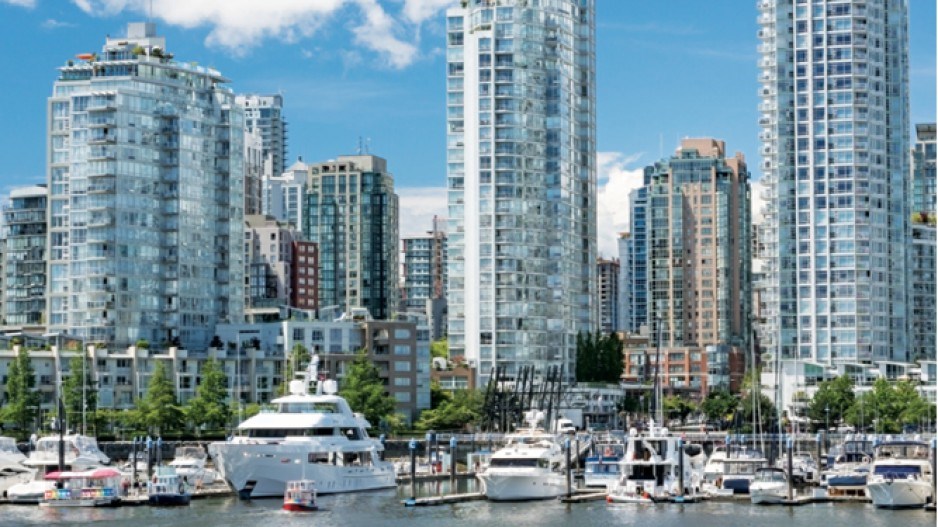Condo demand
A comment during interviews for last week's column prompted further research; in brief, a remark was made that with better jobs, a lower rate of household formation and fewer kids, many people were opting to live in “a shoebox condo” rather than a “3,000-square-foot home in the suburbs.”
The observation isn't new.
Simon Fraser University city program director and fellow Business in Vancouver columnist Gordon Price quipped in a comment to the Vancouver Sun in 2010, “You come to the city to find DNA and go to the suburbs to procreate.”
Condos are great for singles, though tighter for growing families, but as University of British Columbia Centre for Urban Economics and Real Estate director Tsur Somerville explained at an Urban Land Institute event three months after Price's quip, many condo-dwellers are making up for the lack of inside space with outdoor activities.
“They're finding public experiences that replace private experiences,” Somerville said.
Indeed, that undoubtedly helps give Vancouver the vibrant character that contributes to our claiming the best quality of life in North America (alas, not the world), according to the latest Economist Intelligence Unit ranking.
But how does the size of Vancouver condos compare on the global scale?
The average size of a new house in Canada is approximately 1,948 square feet; a typical Vancouver condo is approximately half that.
And in China, Russia and Hong Kong, new homes average 646, 614 and 484 square feet, respectively. (Other industrialized nations build larger digs.)
But if there's always a smaller shoebox out there, there's also a less expensive one.
Back-of-the-envelope calculations, using data from the latest housing affordability study by Illinois urban development consultancy Demographia, indicate that the median price for the average new home in Hong Kong is approximately $1,160 per square foot. But in Vancouver, it's closer to $344 a square foot using Demographia's national numbers – and approximately $420 a square foot if one uses the latest benchmark condo pricing from the Real Estate Board of Greater Vancouver and an average size of 900 square feet.
Small wonder, then, that demand for condos remains strong – not just among singles looking for DNA, but also from first-time buyers, new immigrants and foreign investors who consider the price right when they compare the other options open for purchase.
School's out
Labour Day is coming up, and the return to classes for many.
And soon, Serracan Properties Ltd. will be proceeding with development of 510 Seymour, a new nine-storey office block on the site of a property formerly home to a language school but languishing for want of occupants in recent years.
It's also a fresh start for former Wesgroup Properties Ltd. president Gino Nonni, who left Wesgroup for Serracan in 2012. The tower is Serracan's first project.
When completed in 2016, the office tower will total 76,837 square feet and be a candidate for LEED Gold certification.
No breaks
Walking the rails is something of a family tradition, though not out of necessity (thankfully). Taught early on to listen to the rails for approaching trains, this writer finds the smell of creosote-soaked ties as sweet as the taste of trackside blackberries.
Canadian Pacific Railway Ltd.'s work in the Arbutus corridor therefore sparks mixed emotions.
Restrictions on public access are lamentable, and yet, as CP maintains, it is well within its rights to ensure the line remains serviceable. Anyone walking the line in recent years will have noticed the deterioration in track conditions and would welcome work that makes the line safer for whatever use follows.
Yet maintenance is not the only aspect of ownership that CP has neglected in recent years.
Community garden plots typically bring property owners a tax break from the city, as in the case of the long-running Davie Village Community Garden.
But the community gardens established on CP land in the Arbutus corridor – with the de facto blessing of the city, which has final say on allowed land uses – have earned the railway no tax breaks.
“CP received no tax benefit from having these gardens on our property,” spokeswoman Breanne Feigel said in an email.
One can't help but wonder if the railway isn't justified in putting to use lands that others have used – one might well argue – at some expense to itself.




